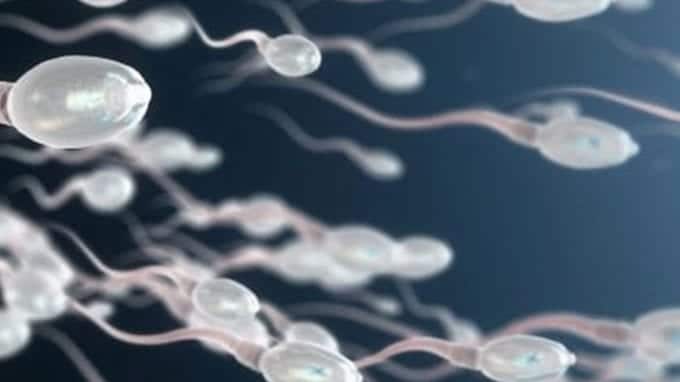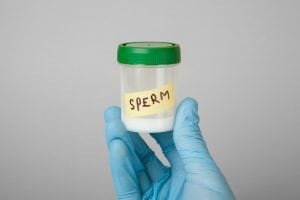Sperm motility is an important part of the conception process, as it is the sperm that needs to swim up through the uterus and to the fallopian tube, in order to fertilize an egg. While, it is not a vast amount of space that the sperm need to swim through, sperm can still lose energy or get lost along the way to the fallopian tube. Research shows that less than one percent of ejaculated sperm actually make it to the awaiting egg. In order for sperm to make it through a woman’s cervical mucus and reach the egg a sperm must have the motility of 25 micrometers per second.
What is Sperm Motility?
Sperm motility refers to the way that individual sperm swims. Motility is the amount of moving sperm within raw ejaculate. There are two types of motility – progressive motility and non-progressive motility. Progressive motility is when sperm swim in a mostly straight line or in very large circles. Non-progressive motility is when sperm swim in very tight circles or do not travel in straight lines.
How Low Sperm Motility Can Occur
Low sperm motility causes may vary, and some may even be unexplained.
Research shows causes may include:
- Damage to the testicles
- Common Causes of testicle damage:
- Infection
- Testicular cancer
- Testicular surgery
- An issue from birth
- Injury
- Undescended testicles
- Long term use of anabolic steroids
- Smoking or the use of drugs
- Varicocele, a condition of enlarged veins in the scrotum
- Common Causes of testicle damage:
Natural Approaches to Help Improve Sperm Motility
There are many lifestyle changes that can be done to help attempt to boost motility.
- Avoid smoking, recreational drugs, and excessive drinking. These have been shown to reduce sperm health and fertility. Many doctors would advise to avoid these if trying to conceive.
- Maintain a healthy weight. Being overweight can affect sperm health.
- Eating more fruits, vegetables, and whole foods. Maintaining a healthy diet will help to promote sperm health.
- Keeping electronics off of and away from your lap area. Try to keep your cell phone out of your pocket. Also, try keeping your laptop off of your lap and on a table nearby.
- Stay Cool. It is important to keep the temperature around the scrotum right below body temperature for ideal fertility.
- Wearing loose fitting underwear may help with this.
- Also, avoiding things such as a hot tub will help keep things cooler.
- When working in the heat, try to take breaks every so often to cool down.
- Manage stress. Stress can decrease sexual function and sperm health.
- Watch out for toxins. It is important to watch out for pesticides and chemicals when trying to conceive. If you must come into contact with them wear protective clothing or gloves.
- Taking daily supplements. Research shows that men who take 200 micrograms of Selenium along with 400 units of Vitamin E have seen improvement in sperm motility after 100 days.
When to Seek Help
By adopting some of these lifestyle changes and practices it could help to improve your sperm motility and fertility. However, if you and your partner have been trying for one year or more with unprotected sex then it may be time to seek assistance. It might be time to consider getting your fertility evaluated by a fertility specialist. A fertility specialist might be able to set you on the correct path and offer treatment to help you become successful with conception.





